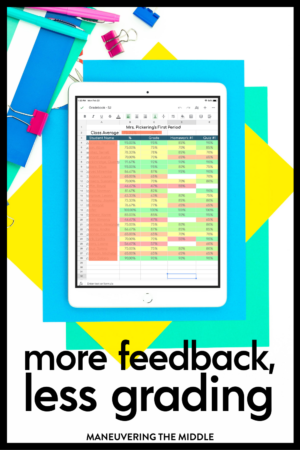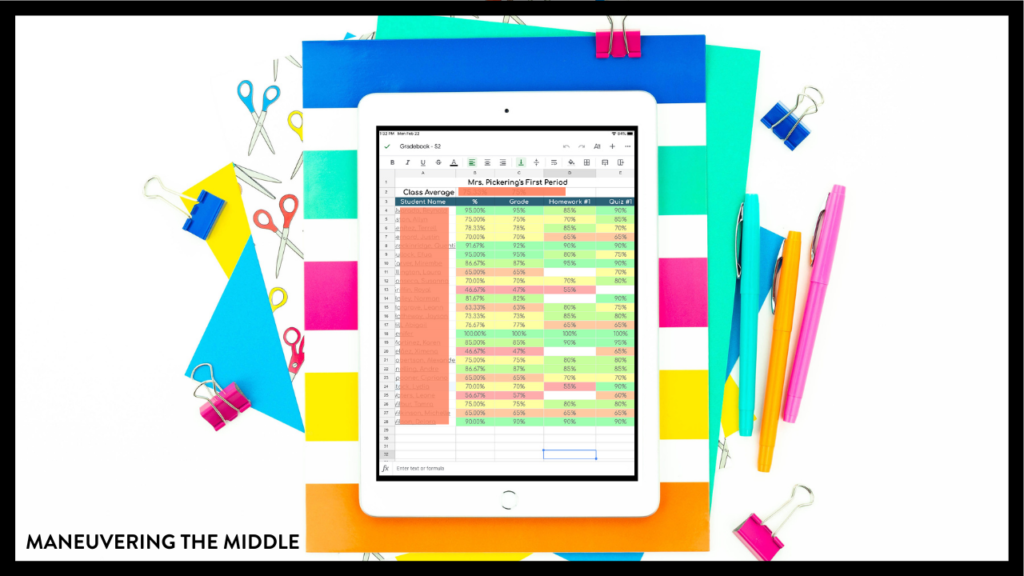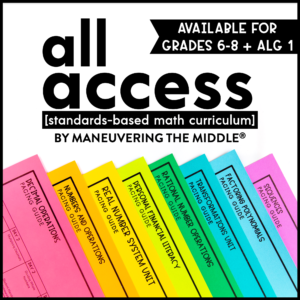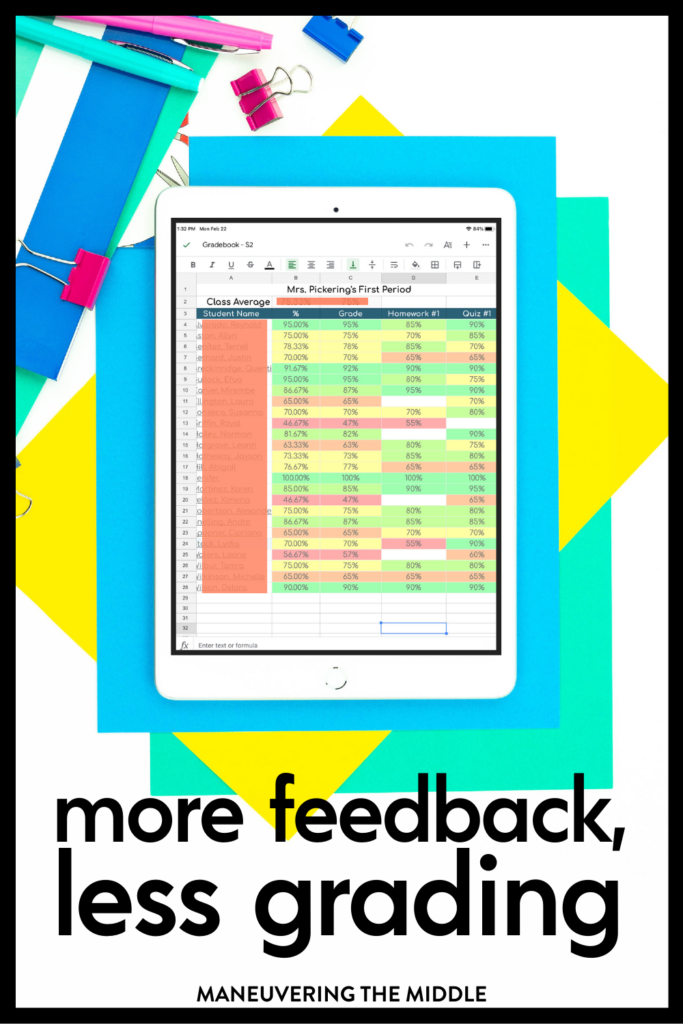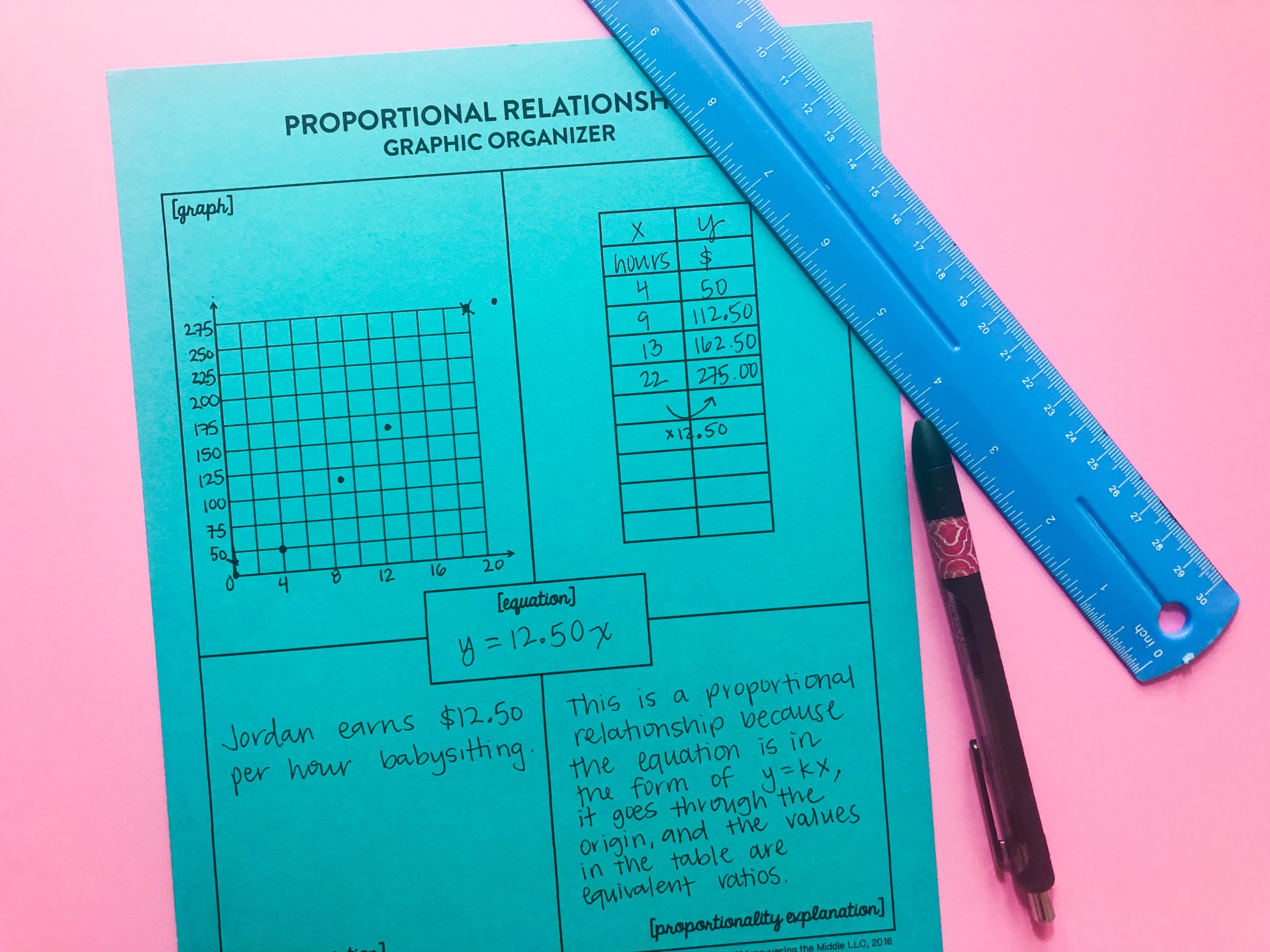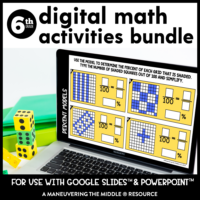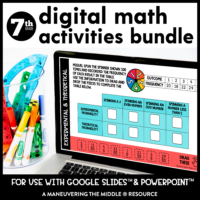When I was a student, I was highly motivated by grades, so when I first stepped into the role as teacher, I was shocked when one of my students threw away a graded assignment that I had just handed back. He didn’t look it over or ask me any questions; he just put it in the trash can. I had expected him to care that he had just failed. Lesson # 643 that I learned that first year: grades do not motivate all students.
LISTEN ON: APPLE PODCAST | SPOTIFY
Let’s talk about the difference between feedback and grading, and why you should be giving more feedback. Grading is the act of taking something and holding it to a scale or rubric. Feedback is evaluative or corrective information about an action, event, or process to the original or controlling source.
Grading an assignment tells a student which problems were done incorrectly. Feedback explains why problems were done incorrectly.
When I say that at first, it sounds like feedback is a lot more work! And I think it can be if you are trying to correct every little thing…so let’s see if we can dispel this idea and construct a plan to give more feedback and grade less.
What to Grade
If you love managing papers and tracking down missing assignments, then grading everything is for you. With all of the internet tools available to students, you may be looking at assignments that lack academic honesty.
Generally speaking, grade the most valuable work. Here are some guidelines:
- You do want to make sure you are following your school’s guidelines. Some schools have consistent values, weights or requirements like two test grades per grading period. That is something out of your control and boundaries that you should work within.
- What formative assessment… like a quick check, mini quiz, or exit ticket…can you grade for mastery on a specific concept? I like these types of assignments because they are typically short and can be both graded and returned to students quickly, plus they reflect a demonstration of mastery.
- Can you consolidate grades? I know some schools have a grading system that accounts for classwork or homework. Can you consolidate those grades from several per week to one per week? I used a homework agenda that allowed me to not only consolidate my grading but also the time I spent inputting grades into a grade book.
How to Give More Feedback
Feedback can be a variety of different things from a quick conversation, to writing notes on a paper, to pulling a small group. What is important about feedback is that it is specific. I implemented a Criteria for Success. I outlined 3 expectations I had when students worked on a specific skill. It was a way of catching a mistake before students arrived at their final answer. For example, if students were working on finding the area of various quadrilaterals, my CFS might be:
- Identify and write down the formula needed
- Label parts of the shape with given values
- Solve using substitution
I could take laps around the classroom quickly, telling students that I was just checking for CFS #1. Another lap could be dedicated to CFS #2. My goal was to catch the misunderstanding before students arrived at their final answer.
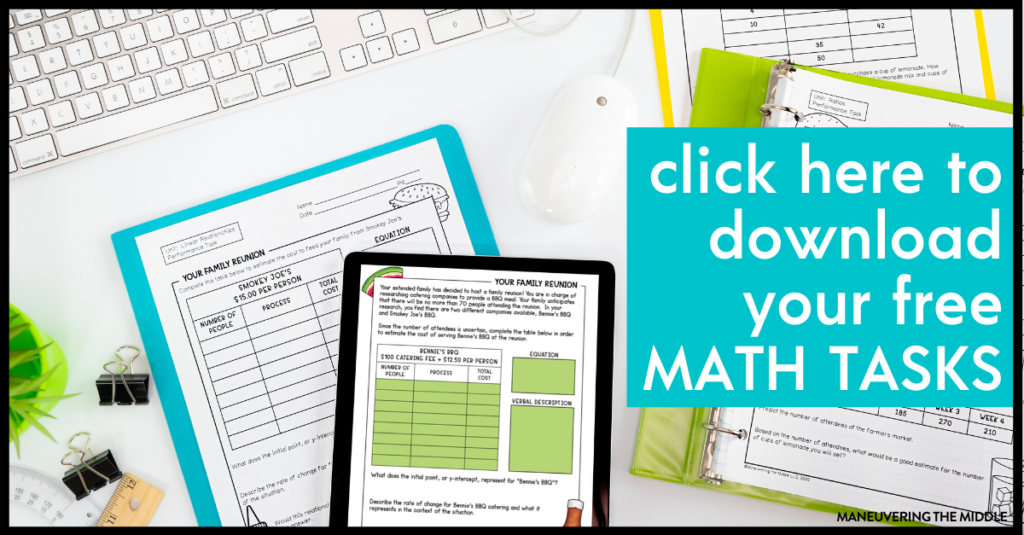
A few other ways to give feedback:
- Whole group error analysis – project a commonly made mistake and have students discuss
- Use a video to repurpose your feedback! One of our MTM teachers, Marissa, teaches a hybrid model shared with me this summer that she used Flipgrid to make short videos of herself solving the problem. Then she just cuts and copies the link as feedback to the students — talk about working smarter not harder and sooooo much easier than trying to type a comment.
Missing Work Woes
Do you have more missing assignments than graded assignments in your grade book? Here are some questions to consider:
- Evaluate how many assignments you are trying to grade and keep track of. Can you reduce that number?
- What is a reasonable amount of work for students to do and for you to grade?
Here are a few ideas
- Everything due on the same day of the week. Those who have completed their work get to do something fun. Those with missing assignments must finish them before they get to participate.
- Utilize things that auto grade with Google Forms or a software like GoFormative.
- Consider a replacement grade? One thing that I hated was finding missing papers or assignments for students towards the end of the grading period. If you have a replacement activity then it will save you trying to locate the specific page they are missing. I would do this with the test review. Test reviews would replace any missing assignments which highly motivated students to get it done and done well!
- Consider dropping the lowest grade of the grading period that gives students some grace and is beneficial to all students who did the work on time.
These are all simple solutions to the missing work woes that you might be facing.
If you are an All Access member, then Unit Test and Unit Quizzes have a Google Forms version to make grading quick!
Learn more all about All Access here.


